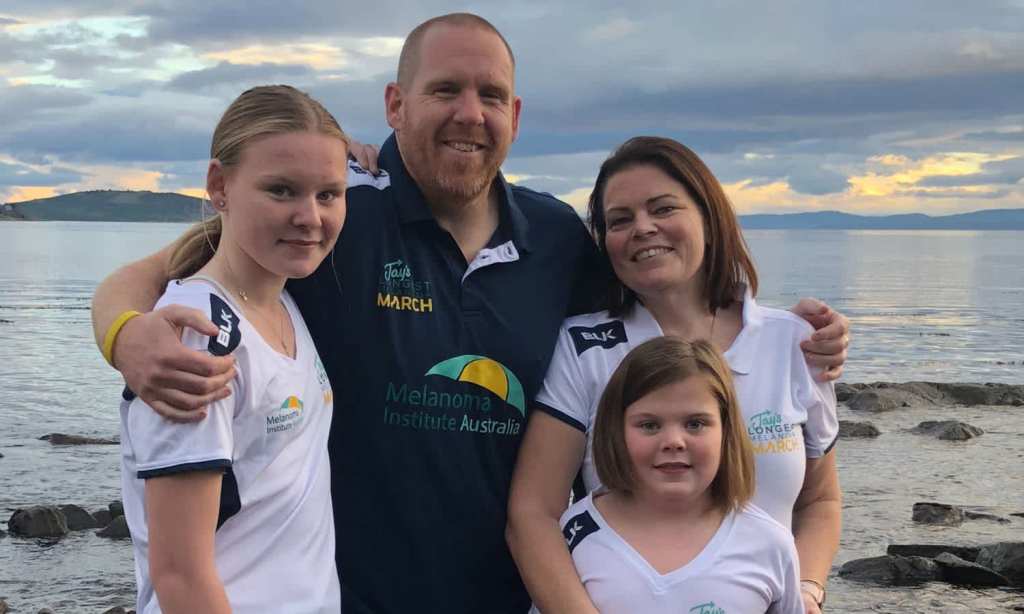Unfortunately, men are more likely to be diagnosed with cancer than women, at 1 in 2 men. Bowel cancer, melanoma and lung cancer are three of the four most common cancers in both men and women. However, men are considerably more likely to be diagnosed and die from these cancers.
For Men’s Health Week, which runs June 13 – 19, 2022, Matt Kean, an Australian living with stage four melanoma, shares his personal experience. Kean is a husband and father of two who is spending what may be his final years travelling around Australia and bringing awareness to melanoma and what can be done to help reduce the impact. Here is his story:
We have begun a journey that has changed our lives forever. It’s a journey that I share with others in the hope that they don’t have to experience it themselves.
I was out in the garden all day with a friend, and I looked down and saw a lump. At the time I thought I’d been bitten — being a man I looked at it and thought ‘I’ll be right’.
What I thought was a bite didn’t get better, so I went to the doctor and within a few days I had a lump removed from my right thigh and subsequently had the lymph nodes in my groin removed — I thought it was going to be cut out and I’d be fine.
Five days after this operation, I was called in to see the surgeon and received the news that we really didn’t want to hear. This is when it became incredibly real — Stage Three Melanoma.
It’s hard to describe how I felt when I was first told about immunotherapy. The doctor said ‘we should get 8-10 years out of you’. I was just approaching my 40th birthday and I never expected to be told that I probably wouldn’t make it to 50. Had this kind of treatment not been around at the time, I probably wouldn’t have made it to another year.
I was now a patient at Peter Mac in Melbourne and travelled down for three monthly scans. Then, during a routine scan, they found that the cancer had spread to the lymph nodes inside my pelvis, becoming Stage Four.
I have a 15-year-old daughter, Ava, who has ridden every bump. She overthinks it, and I know it’s hard on her — what can you tell a child of that age? When I found out the cancer had spread and was now classed as Stage Four, we felt it was time she finally knew what the prognosis was.
We sat Ava down to explain. With a tear running down her eye she said to me ‘we might only have five years left together, Dad’. My youngest daughter was little and didn’t understand, but Ava knew exactly what this meant — losing her Dad. The hardest thing about all of this is the damage it has done to my wife and kids, it’s heartbreaking knowing how tough it is on them.
At the end of the day, this may well get me, but if every talk I give, or each conversation I have, has an impact on someone that prevents them from going through what I have, then I’ve made the most of my time. It wouldn’t be a waste.
If this story or any other cancer stories have raised concerns for you, reach out and call Cancer Council’s Information and Support line at 13 11 20.
Read more stories from The Latch and subscribe to our email newsletter.

